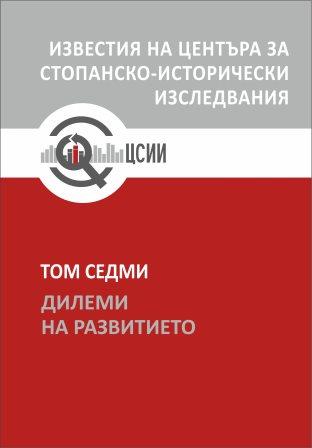Нормативна уредба на частната стопанска дейност в България (края на 40-те – 70-те години на ХХ век)
Legal Regulation of the Private Economic Activity in Bulgaria (late 40s – 70s of the 20th Century)
Author(s): Kostadin PaevSubject(s): History, Economy, National Economy, Marxist economics, Economic history, Social history, Post-War period (1950 - 1989), Public Finances, Human Resources in Economy, Business Ethics, Socio-Economic Research
Published by: Център за стопанско-исторически изследвания
Keywords: private initiative in the economy; socialism in Bulgaria; legal regulation of the private business initiative; periodization of legislation of the private business activity
Summary/Abstract: Although total condemnation of private property as a major source of social and thus the political conflicts in society, the private initiative in the economy as a tool for exploitation of man by man, communist ideology was unable to eliminate completely them, neither in the people’s thinking, nor in the legal system of socialism and the real business. The present paper makes periodization of this legislation and focusing in particular on one of the least-known stages in its development. The free professions as lawyers, musicians, artists and others, private medical services, as well as agricultural activities and cooperative associations, are excluded from the study. A priority place is given to crafts, trade and services provided by private individuals. In the legal framework of private economic activity during the time of socialism, two main periods are outlined: the first from the late 1940s to the 1970s, which is the subject of the present study, and the second – in the 1980s. The Constitution of 1947 does not, in principle, reject the possibility of exercising private economic activity. It contains provisions that can be classified into three groups: 1) directly concerning the stimulation of private business initiative; 2) provisions indirectly related to this activity, and 3) restrictive provisions. In the 1950s, some of the old forms of private economic activity in the field of small trade and services, which the totalitarian regime in the country allowed due to objective circumstances, still continued to exist. The 1960s saw a trend towards stagnation and restriction of private economic activity, which trend intensified and reached its peak after the adoption of the new constitution in 1971 until the end of the 1970s. Only later, in the 1980s, the authorities resorted to a change of strategy and the search for new forms of economic activity by private individuals.
Journal: Известия на Центъра за стопанско-исторически изследвания
- Issue Year: VII/2022
- Issue No: 1
- Page Range: 204-220
- Page Count: 17
- Language: Bulgarian

